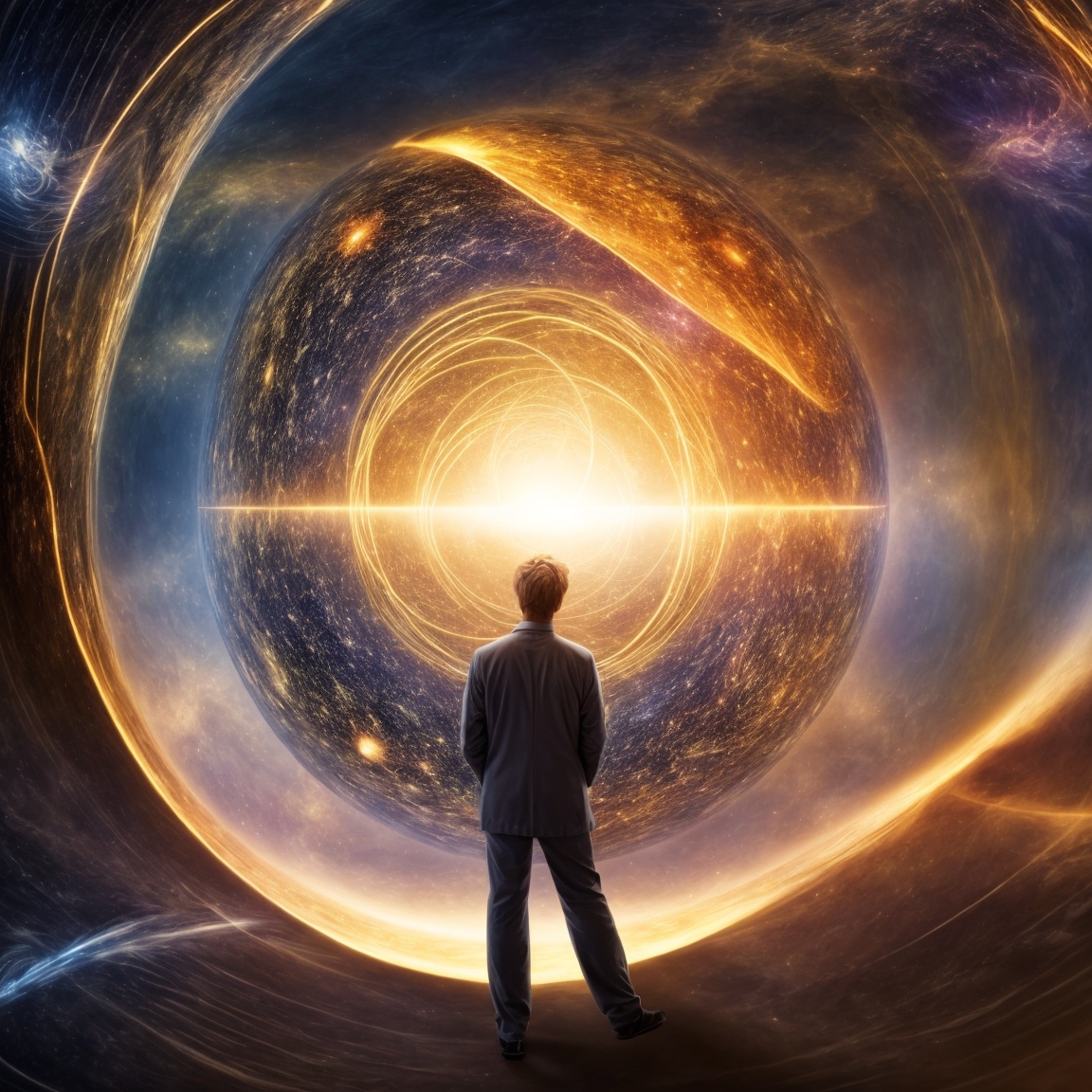The Symphony of Existence: A Philosophical Exploration of Sound, Science, and Belief
The Symphony of Existence
An Ancient Harmony
Since antiquity, philosophers, astronomers, and mystics have pondered the concept of the „music of the spheres,“ a romantic notion that the movements of celestial bodies create a symphony, a melody echoing through the cosmos. But what if we venture beyond the literal interpretation and view this idea as a metaphor for the interplay between sound, knowledge, and our understanding of the supernatural?
Sound, Intonation, and the Power of Expression
Sound, and more specifically, intonation, plays a pivotal role in how we understand and interact with our world. Intonation, the subtle variations in pitch and tone, conveys emotion and nuance in speech and music. It is a powerful tool that shapes how we interpret and respond to our environment and one another.
The Science of Sound
Delving into the scientific realm, we find that sound is a mechanical wave that propagates through a medium, such as air or water. This scientific understanding, however, only scratches the surface of sound’s true significance. Sound has the unique ability to transcend the physical and stir something deep within us, evoking emotions and memories.
The Art of Expression
Intonation serves as a prime example of how sound can convey meaning and influence our interactions. A slight variation in pitch or tone can transform a statement into a question, convey sarcasm or sincerity, and even indicate social status or cultural background. It is a subtle yet powerful aspect of human communication.
The Tension Between Empiricism and the Supernatural
In an age of scientific advancement, where knowledge and understanding of the universe are ever-growing, we find ourselves grappling with the tension between our rational, empirical minds and our experiences that seem to transcend scientific explanation. This dichotomy between science and the supernatural persists.
Exploring the Supernatural
Consider the concept of reincarnation, a belief held by various cultures and religions, which suggests that the soul continues its journey after death, taking on a new form. This idea presents a fascinating perspective on the cycle of life and death, offering hope and a sense of continuity.
On the other hand, we have theism, the belief in a supreme being or deity. This belief often provides a sense of comfort and purpose, suggesting that there is a higher power guiding our destinies. However, it also raises questions and challenges, particularly in the face of scientific advancements and our growing understanding of the natural world.
Navigating the Frontier
At the frontier between scientific understanding and the supernatural, we encounter intriguing concepts that blur the lines between the two. For instance, the idea of a banshee, a supernatural being whose mournful wail is said to herald impending death, blends folklore and the supernatural with the very real emotional response evoked by a haunting melody.
The Unknowable and the Kantian Perspective
Immanuel Kant’s concept of the „thing-in-itself“ delves into the heart of this tension. It acknowledges that our sensory perception and understanding of reality are inherently limited, and there exists an essential nature to things that is ultimately unknowable to us. This idea challenges our sense of certainty and prompts us to consider the vastness of what we do not, and perhaps cannot, know.
A Look to the Future: Synthesis or Eternal Cycle?
As we continue to advance scientifically, can we ever truly reconcile our understanding of reality with our belief in the supernatural? Futurology, the study of the future, presents us with two possible paths: synthesis or eternal cycle.
Synthesis and Reconciliation
The first path suggests that we, as humans, will eventually achieve a synthesis of scientific knowledge and supernatural virtue. We will find a way to integrate our understanding of the natural world with our spiritual beliefs, creating a harmonious whole.
The Eternal Cycle of Vishnu
The second path draws parallels with the Hindu concept of Vishnu, the preserver, and his eternal cycle of creation, preservation, and destruction. It suggests that we are forever destined to repeat cycles, never truly grasping the nature of reality in its entirety, but continually striving and evolving in our pursuit of knowledge and understanding.
Which path will we take? Will we find harmony in synthesis, or continue on the eternal cycle of seeking, never quite reaching the end of our philosophical journey? These questions remain open, inviting further exploration and discussion.













































